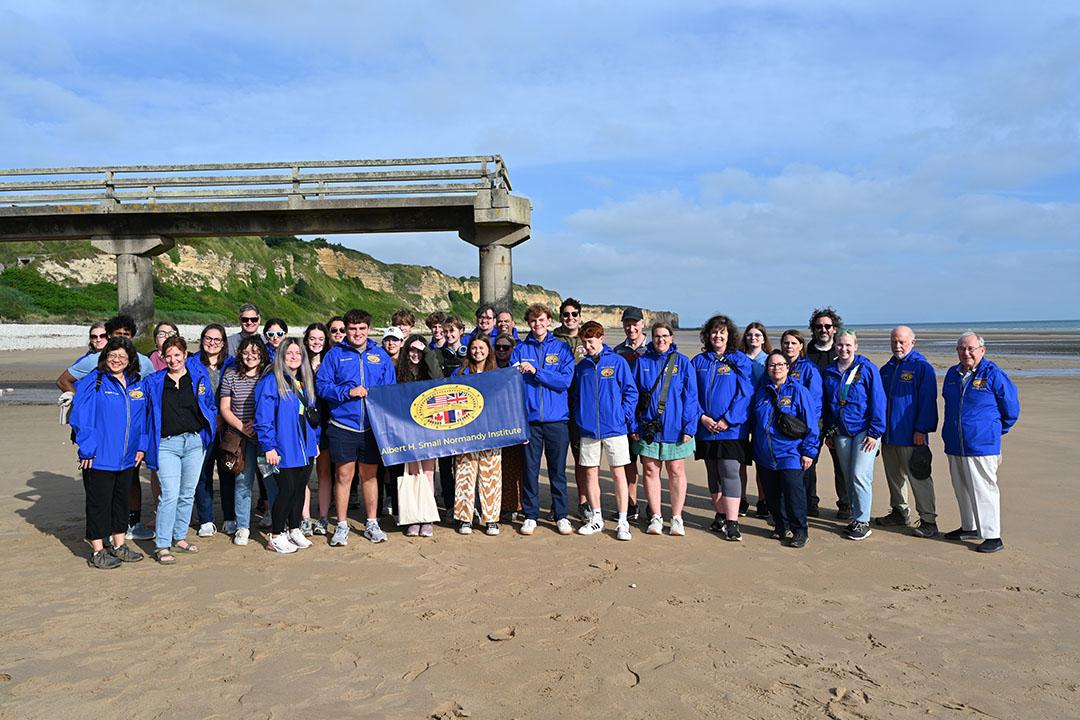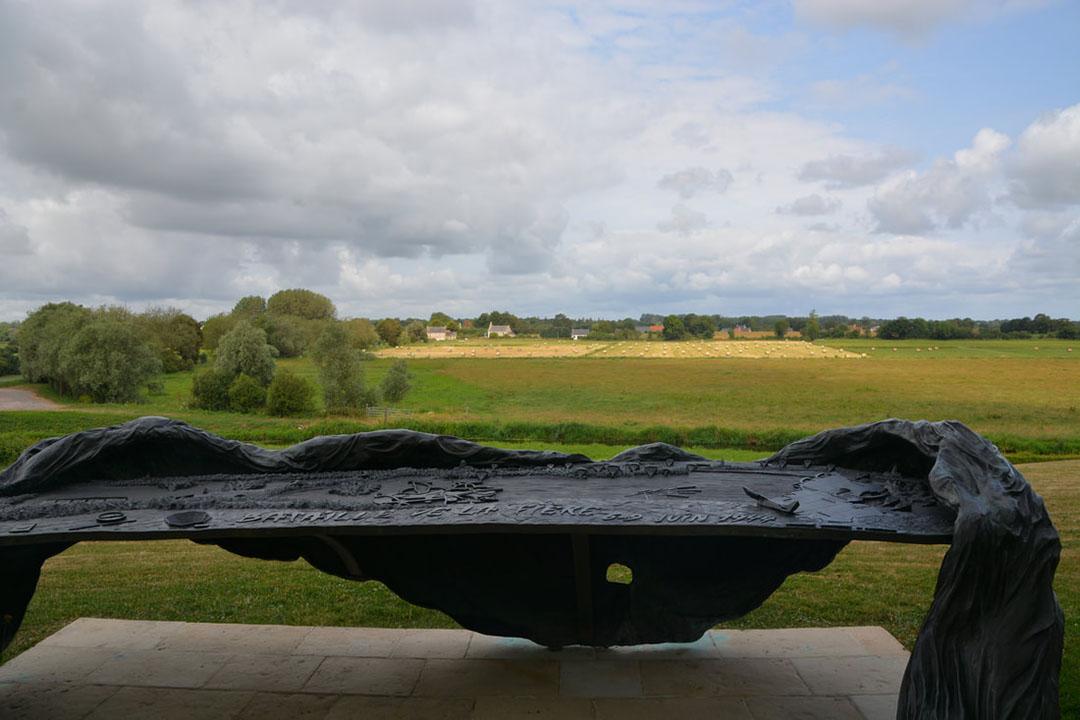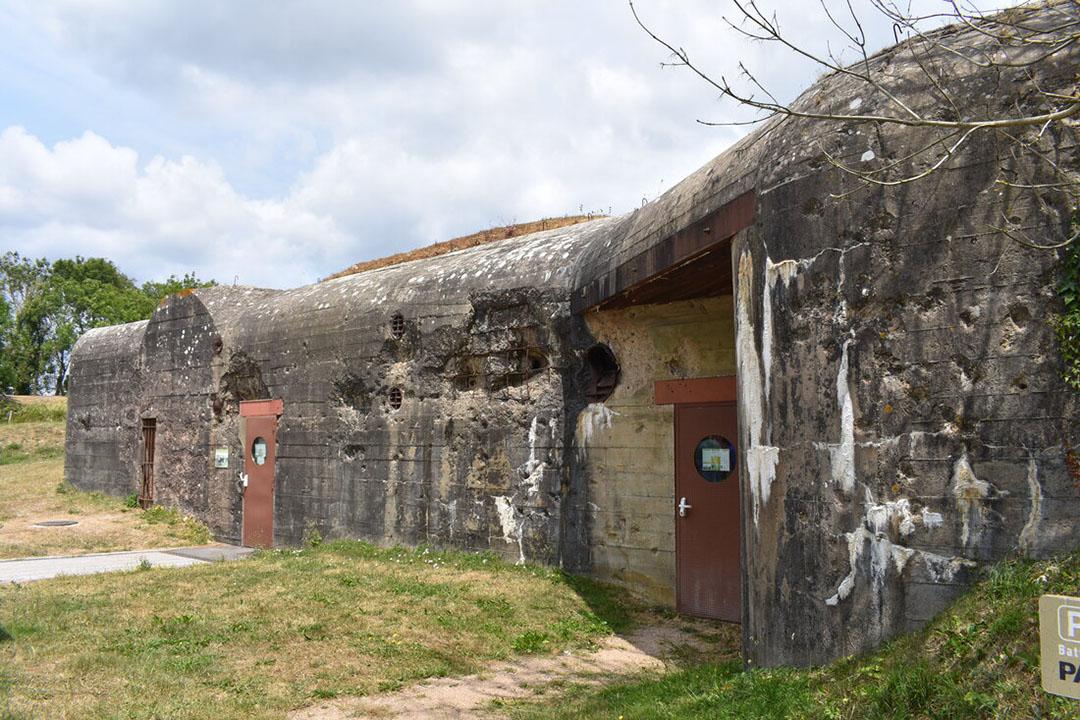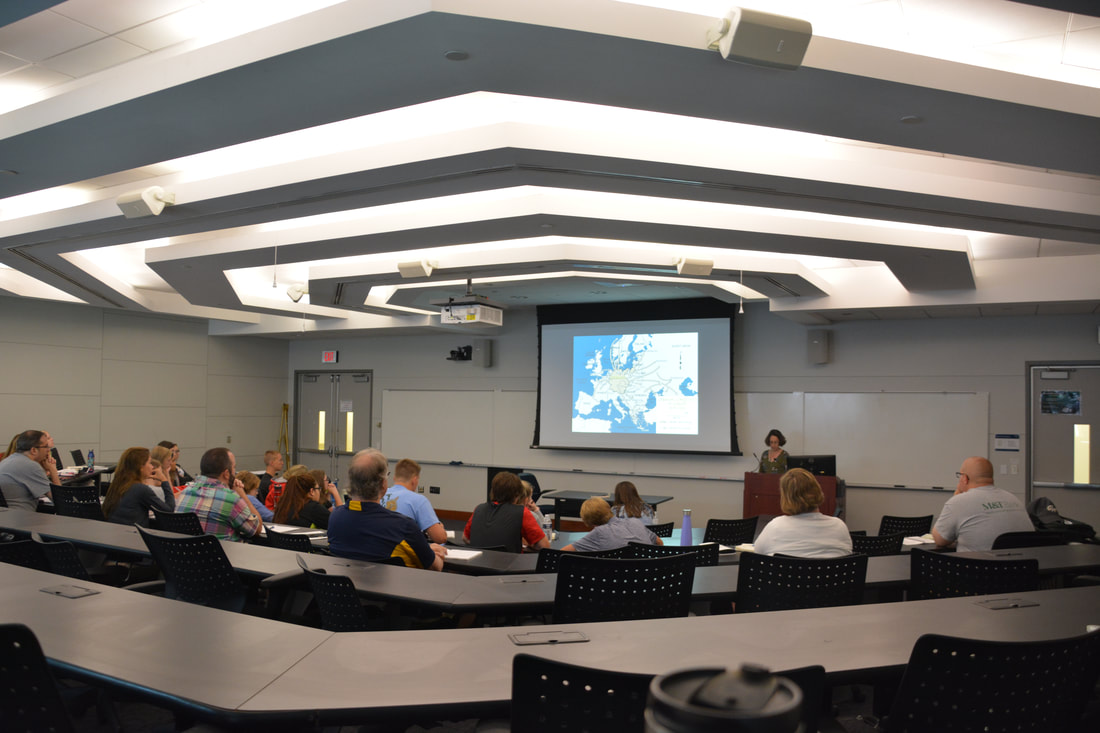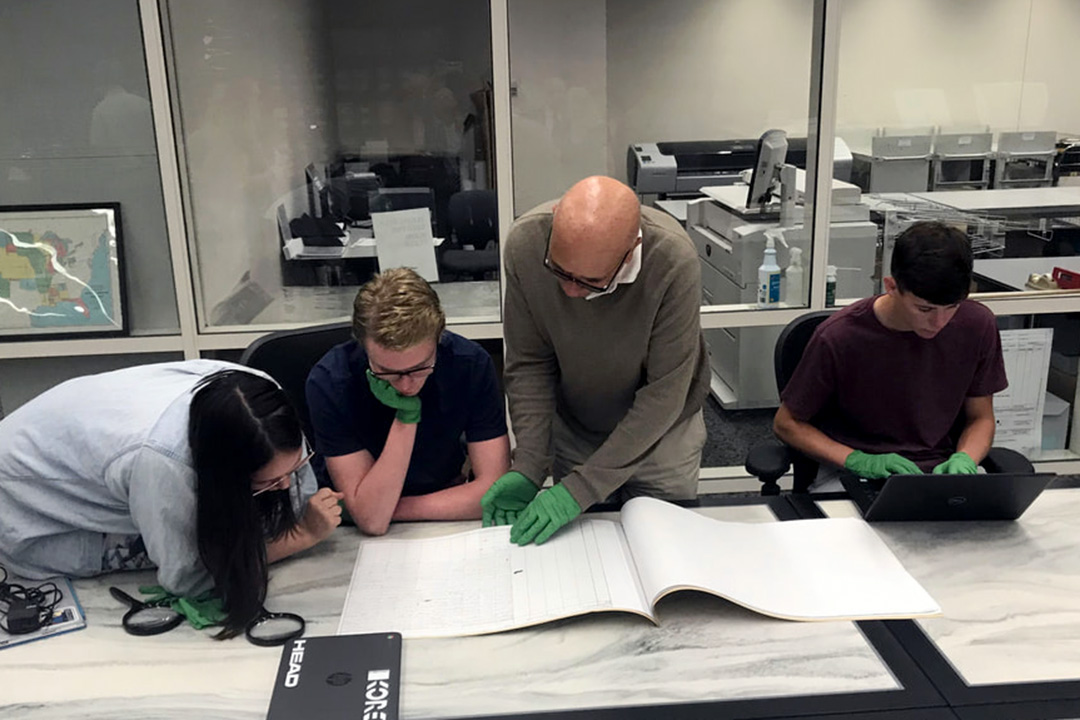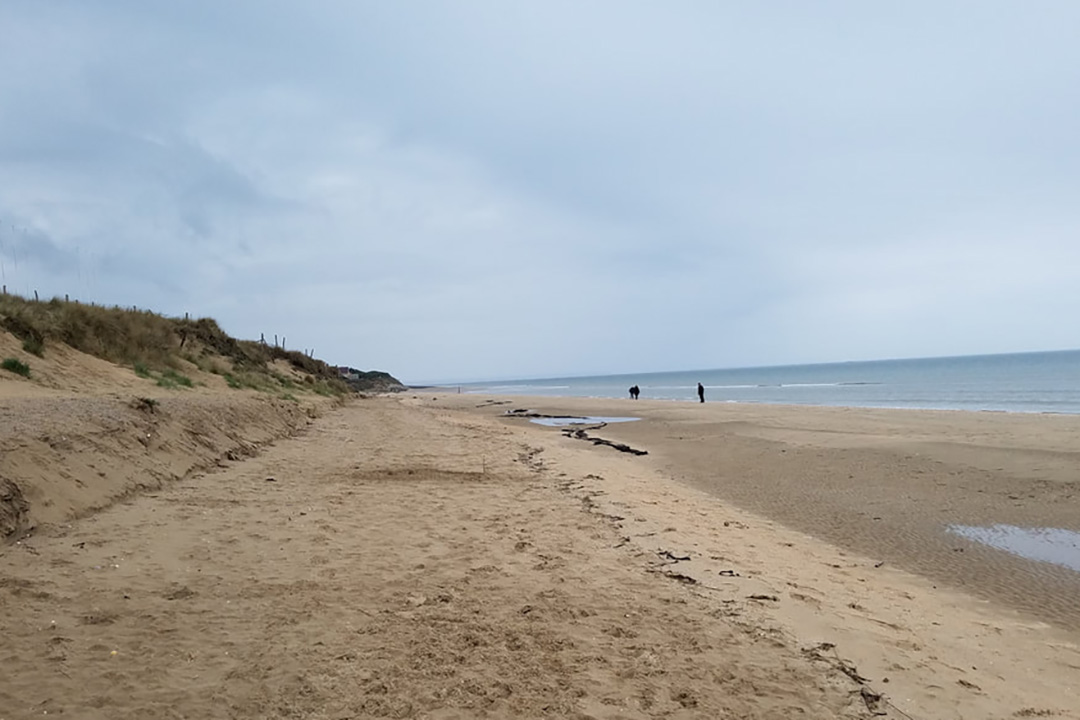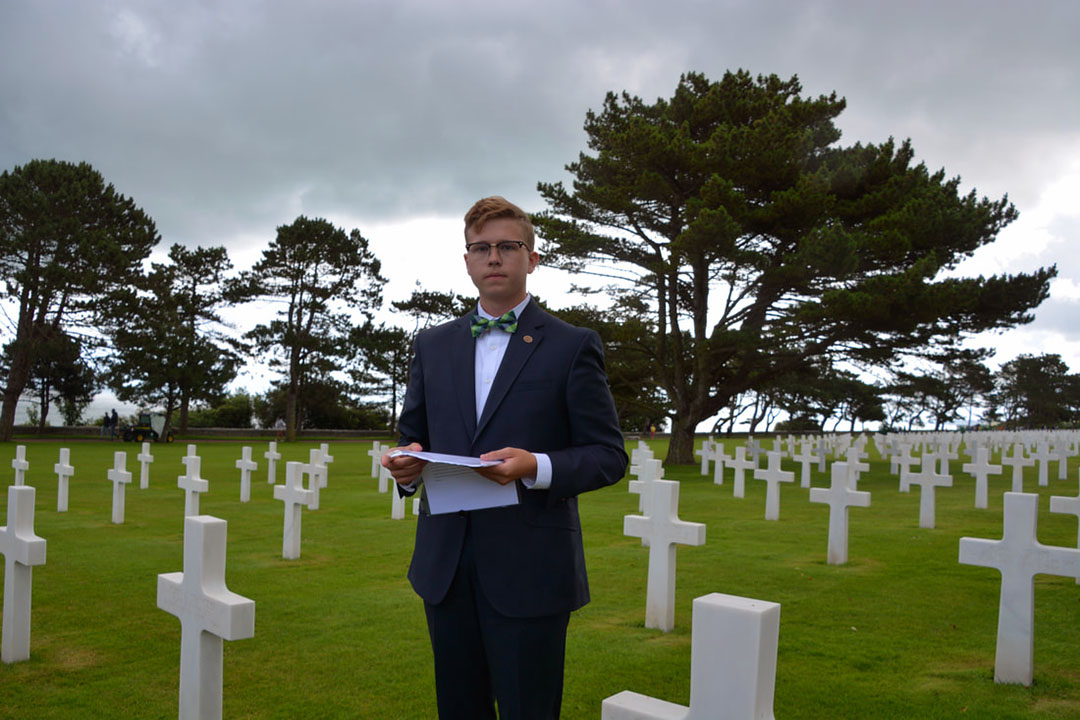Home
Albert H. Small Normandy Institute
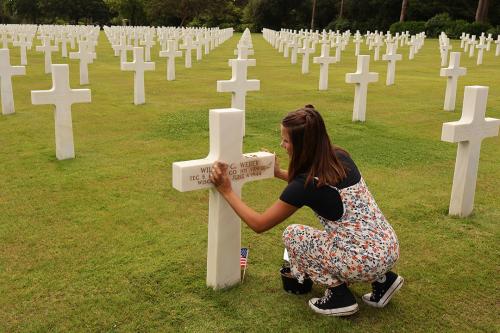
The Albert H. Small Normandy Institute at George Washington University takes high school students through an intensive program to learn about the D-Day Campaign of 1944. The Institute culminates with travel to Washington, D.C., and Normandy, France.
During the semester, student-teacher teams participate in discussions and lectures by Institute staff. They study a chosen topic pertaining to the Normandy campaign and engage in extensive research on the life of a solider buried at the Normandy American Cemetery in Colleville-Sur-Mer, France. There, students present their biography for the soldier they have researched at their graveside.
The Significance of Normandy
The Allied invasion of occupied Normandy, France in June 1944 constituted a decisive turning point in the Second World War. Unprecedented levels of planning and international cooperation, along with the considerable sacrifices of countless numbers of soldiers, made an uncertain success possible. At stake, many rightly believed, was the independence of the Allied Nations and the fate of the non-fascist world.
Four years earlier, Prime Minister Winston Churchill suggested that “if we fail” in the effort to defeat the forces of fascism, “then the whole world, including the United States, including all that we have known and cared for, will sink into the abyss of a new dark age made more sinister, and perhaps more protracted, by the lights of perverted science. Let us therefore brace ourselves to our duties, and so bear ourselves, that if the British Empire and its Commonwealth last for a thousand years, men will still say, ‘This was their finest hour.’”
In June 1944, the Supreme Allied Commander General Dwight D. Eisenhower launched what he termed was the “Great Crusade”; after substantial casualties, “Operation Overlord,” as the campaign was officially called, began the difficult and painful process of driving back Nazi forces from Normandy and then France. As the Americans, British, Canadians, and others pressed from the West, the Soviet Army pressed from the East; the end of the European war was finally in sight.
Applications and Deadlines
The Class of 2026 application is closed. The Class of 2027 application will open on September 1, 2026.
Please review the application and program overview and contact us with any questions!
Trace the Normandy Campaign and the Price of Freedom
What to Expect
Study
On GW's campus in downtown DC, you'll hear lectures by faculty members, visit Arlington National Cemetery, conduct research at the National Archives, and more.
Research
Follow a soldier from your hometown through combat and write their biography using primary sources from the National Archives and other sources.
Explore
In France, walk the beaches and battlefields of Normandy, explore the fortifications of the Atlantic Wall, and visit historical and cultural sites in Paris.



